You'll get the best results from vodka-soaked fruits by following three key storage periods. For fresh berries, limit infusion to 20-30 days to maintain ideal flavor and prevent spoilage. Citrus fruits can soak longer, typically 30-40 days, while stone fruits like peaches and plums work best with 40-50 days of infusion time. Once strained, your vodka-infused fruits can last up to 6 months when refrigerated in airtight containers. Remember to check for signs of spoilage and maintain proper storage conditions – there's much more to preserving your fruity spirits than just time frames.
Short-Term Fresh Fruit Preservation

Once your fruit is clean and dry, you'll need to prepare it for ideal preservation. Remove any pits or seeds that could affect the final product's taste or texture.
For fruits that tend to brown quickly, like peaches, you'll want to apply lemon juice as a natural preservative. Add about three tablespoons per quart of fruit to prevent discoloration. This step helps maintain the fruit's appealing appearance throughout the preservation process.
Don't forget to trim or cut your fruit into appropriately sized pieces before proceeding with the alcohol infusion. The size of your fruit pieces will affect how quickly and effectively the vodka can penetrate the flesh.
Smaller, uniform pieces typically lead to more consistent results in the final product. This preparation phase is vital for ensuring your vodka-soaked fruits turn out perfectly preserved and flavorful.
Optimal Monthly Storage Period
Understanding the ideal storage period for vodka-soaked fruits can make or break your infusion project. You'll find that different fruits have distinct best soaking times before they start showing signs of spoilage.
If you're working with berries, you'll want to keep your infusion time between 20-30 days. For citrus fruits, you can extend the period to 30-40 days before discoloration becomes a concern. Stone fruits like plums and peaches offer the longest infusion window, lasting 40-50 days before quality begins to decline. Pure grain alcohol can be substituted for vodka to achieve better flavor extraction.
Once you've strained your infusion, you can store it in the refrigerator for 3-4 months. You'll need to keep it in an airtight container in a cool, dark place to maintain its quality.
Watch for signs of spoilage such as discoloration, mold, or unusual smell. If you notice your fruits turning white or your infusion becoming murky, it's time to strain out the solids.
To maximize shelf life, use higher-proof alcohol and acidic fruits. Don't forget to label your infusions with dates, and remember that even properly stored infusions will gradually lose their vibrant color and flavor over time.
Extended Refrigerated Shelf Life
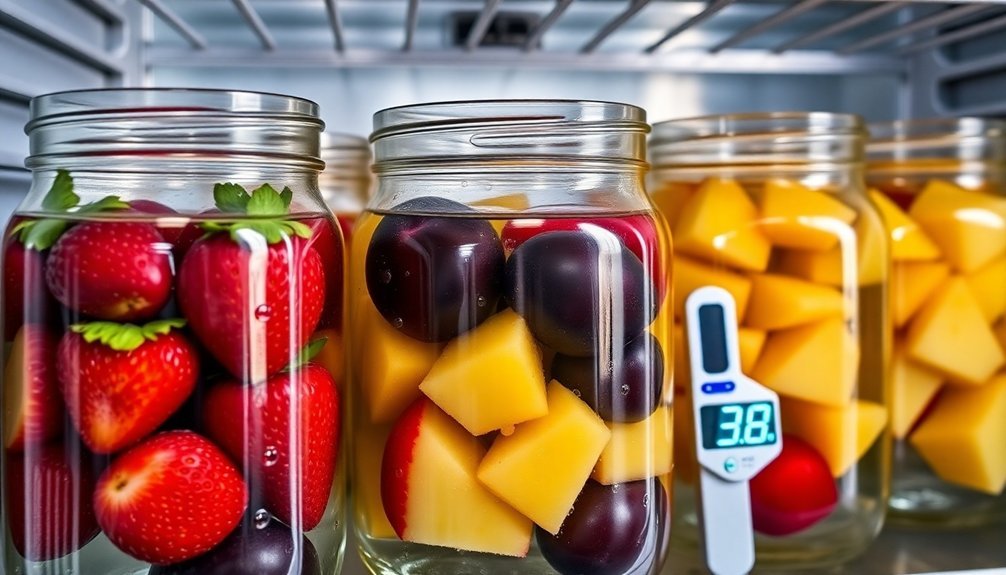
Properly refrigerated vodka-soaked fruits can maintain their quality for up to 6 months when you've removed all solid materials. To achieve this extended shelf life, you'll need to store your infusions in clean, sterile containers with airtight seals to prevent contamination and oxidation.
Make sure you're using containers that aren't cracked or damaged, as these can introduce harmful bacteria. Vodka infusions should be stored upright to maintain their quality and prevent leakage.
You'll get the best results by keeping your infused vodka in a cool, dark place within your refrigerator. The cold temperature slows down the fermentation process and helps preserve the flavors you've worked to create.
Don't store the containers on their sides, especially if they're corked, as this can lead to unwanted contact between the cork and liquid.
If you're planning for long-term storage, it's essential that you strain out all fruit solids after the initial infusion period. Even though the alcohol acts as a preservative, leaving fruit pieces in the mixture can cause the breakdown of cell structures, leading to off-flavors.
Watch for any signs of spoilage, such as unusual smells or tastes – if you notice anything off, it's best to discard the infusion.
Frequently Asked Questions
Can Vodka-Soaked Fruits Be Frozen for Later Use?
You shouldn't freeze vodka-soaked fruits as it'll damage their texture and make them mushy. The alcohol content already preserves them well, so just store them in the refrigerator for the best results.
What Happens if I Mix Different Types of Fruits While Infusing?
When you mix different fruits during infusion, you'll create unique flavor combinations, but you'll need to monitor carefully since each fruit infuses at different rates. Remember to balance proportions to avoid overwhelming flavors.
Should I Remove Seeds From Fruits Before Vodka Infusion?
Yes, you'll want to remove seeds and pits before infusing vodka. They can add unwanted bitterness to your infusion and affect the final flavor. It's especially important for fruits like cherries and peaches.
Can I Reuse the Same Vodka for Multiple Fruit Infusions?
You shouldn't reuse vodka for multiple infusions as it'll lead to flavor contamination and quality degradation. Each infusion leaves residual tastes, so it's best to start with fresh vodka every time.
Are Organic Fruits Better for Vodka Infusion Than Conventional Ones?
You'll find organic fruits can offer cleaner, more vibrant flavors in your vodka infusions due to their pesticide-free growing methods. While both work well, organic options may provide more nuanced and pure taste profiles.
In Summary
You'll find that vodka-soaked fruits offer three reliable storage options. Whether you're planning to enjoy them within a few days, store them for several months, or preserve them long-term, proper timing makes all the difference. Keep short-term fruits up to 5 days at room temperature, monthly storage batches for 2-3 months in a cool place, and extend shelf life up to 6 months when refrigerated.

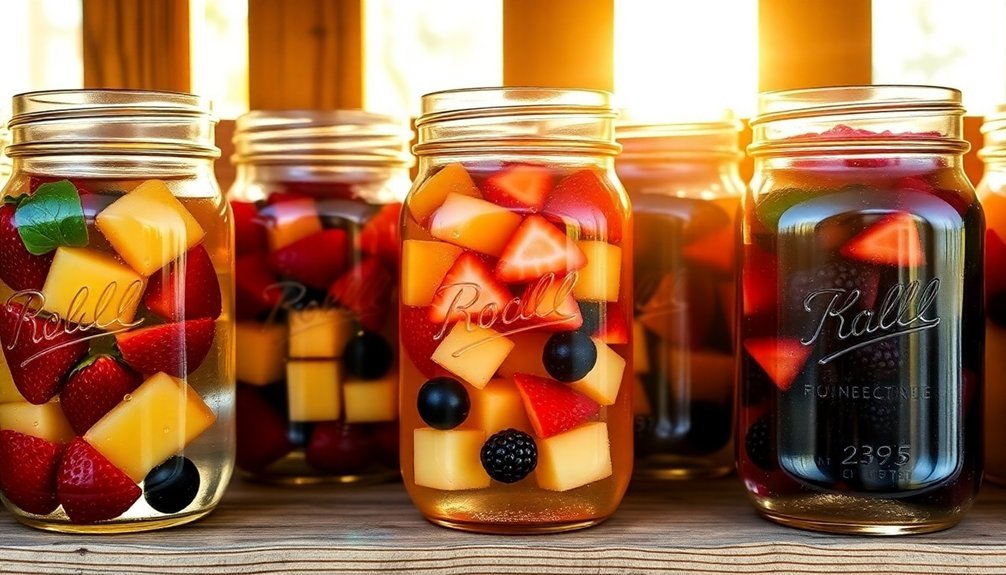
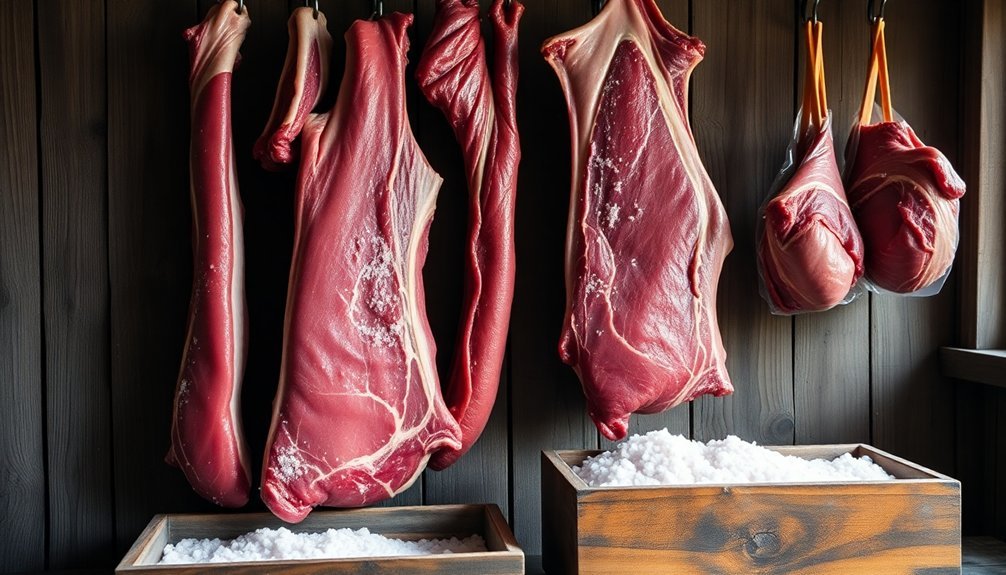
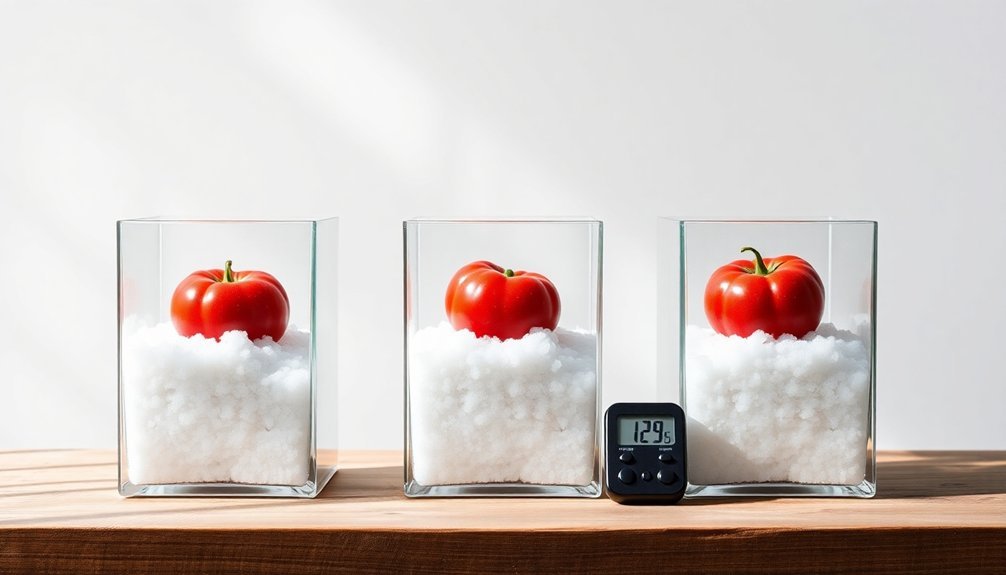
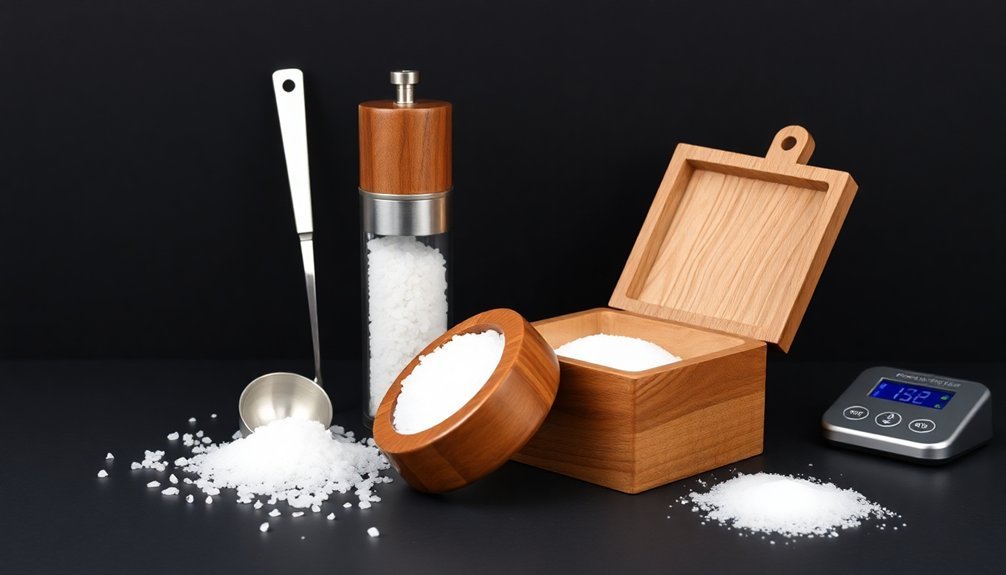
Leave a Reply